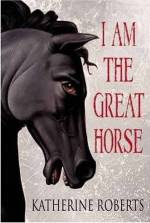August Reading

Just in time for the August bank holiday, the Muse is back for our monthly reading post. Since we are on a bit of a horse theme at the moment, the first book I’d like to bring to your attention is a fabulous historical horse story that should appeal to those who liked “I am the Great Horse”. I Rode a Horse of Milk White Jade – Diane Lee Wilson This book is set on Mongolian steppe at the height of Kubilai Khan’s great empire. Oyuna, crippled as a baby when a horse crushes her foot, nevertheless has a great love for horses and finds freedom riding on their backs. But her lameness is seen as bad luck, and when her mother is killed by lightning Oyuna and her family are declared unclean by the shaman. She vows to bring good luck back to her clan by winning the long race at the annual Karakorum Festival. But first she must find herself a fast horse – and the old, lame white mare Bayan who “speaks” to her at the horse fair clearly will not do. But Oyuna can tell the mare is miserable so she ...




